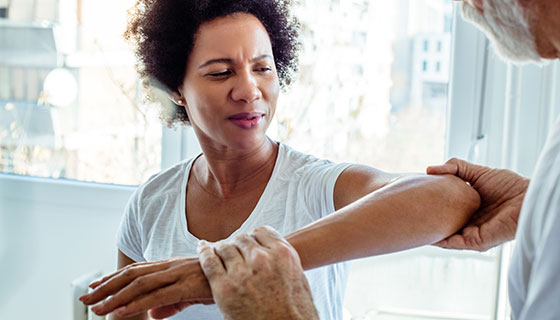Postpartum Hair Loss
You may notice that after pregnancy, your hair is thinner and more prone to shedding than it was before. This is a common and temporary process that many women experience postpartum.
What You Need to Know What You Need to Know
- Many women experience hair thinning or hair loss after pregnancy.
- Changes in hormones during and after pregnancy cause hair to first grow thicker, and then shed as hormone levels return to normal.
- While a good diet and careful use of shampoos can help stop further shedding, hair returns to its normal growth cycle after about 6–12 months.
What is postpartum hair loss?
Postpartum hair thinning or hair loss, known as telogen effluvium, is a common condition that occurs when hormone levels drop back to their regular levels after childbirth. While it can be a surprising and distressing experience for new mothers, it’s important to understand that this hair loss is usually temporary, and in most cases, hair growth returns to normal within a few months.
Who can experience hair thinning after pregnancy?
Postpartum hair loss, or hair thinning, is a common experience for many new mothers, though the amount of hair lost can vary. The severity of hair loss depends on individual hormonal levels and genetic factors. Women who breastfeed might notice a longer period of hair shedding compared to those who do not, as hormonal changes continue throughout the breastfeeding period.
While hair loss is usually associated with new mothers, it is not exclusively limited to them. Adoptive mothers or those who have experienced similar hormonal changes, such as through fertility treatments, might notice increased hair shedding as well. It’s important to know that postpartum hair loss can affect anyone who has experienced significant hormonal shifts, including those who have gone through miscarriage or stillbirth.
What are the causes of postpartum hair loss?
Postpartum hair loss mainly happens because of changes in hormones, such as estrogen, during and after pregnancy. When a woman is pregnant, higher levels of estrogen extend the growth cycle for hair, which makes hair grow longer and thicker. After pregnancy, hormones go back to their normal levels. This causes a lot of hair that was in the growing cycle to enter the shedding phase all at once.
Other causes of postpartum hair loss include:
- The physical and emotional stress of childbirth
- Nutritional deficiencies after childbirth, especially if a woman is breastfeeding and her body is prioritizing nutrient delivery for milk production
- Genetics, as some women may be more predisposed to experience significant hair changes due to inherited factors
- Thyroid disease that is untreated or not optimally treated
When does postpartum hair loss start?
Postpartum hair loss usually starts about three months after giving birth. This timing matches the natural hair growth cycle because estrogen levels, which were high during pregnancy, return to their normal levels.
When does postpartum hair loss stop?
Postpartum hair loss usually ends about 6–12 months after giving birth. Most women see their hair returning to its normal thickness as their hormone levels stabilize and go back to what they were before pregnancy.
Treatments for Managing Postpartum Hair Loss
Patience is key, as postpartum hair loss is usually temporary and tends to resolve naturally within a few months. Here are some methods that may help prevent further hair loss:
- Eat a balanced diet with essential nutrients that can help support hair health.
- Use gentle, sulfate-free shampoos and conditioners designed to reduce breakage.
- Add scalp massages with natural oils such coconut or argan oil to your routine, which can improve blood circulation to the scalp and nourish hair roots.
- Consult with a dermatologist for treatments such as biotin supplements or low-level laser therapy, which have shown promise in stimulating hair growth.






